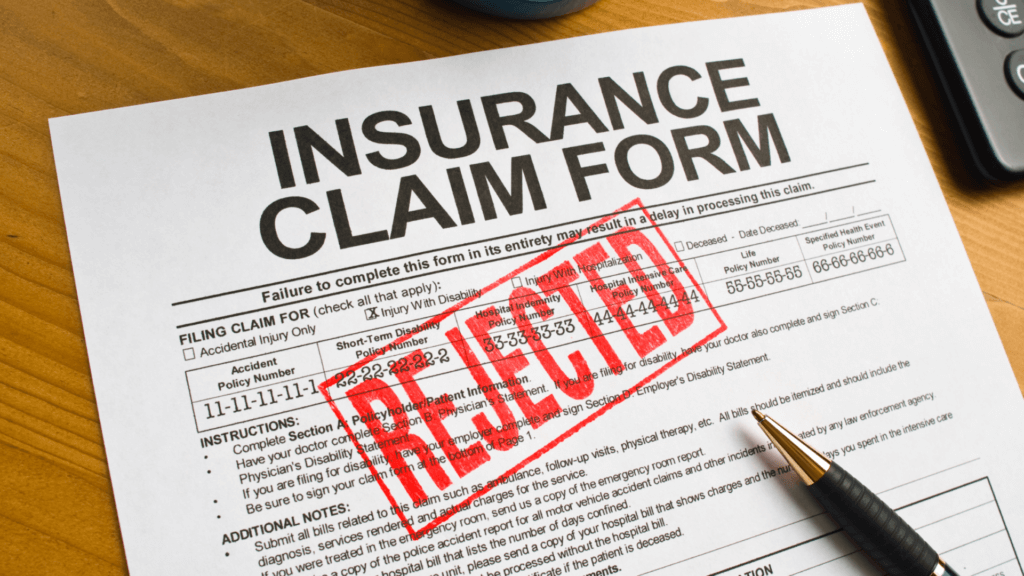
Any type of commercial property damage can be overwhelming for business owners to deal with. It can quickly disrupt the flow of operations and become a major financial burden. While having the proper insurance can provide some relief for insureds with a commercial property policy, insurance providers can and often do deny, severely underpay, or delay perfectly valid claims. These and other bad faith tactics can turn an already stressful situation into one that is nearly impossible to navigate without proper legal support. Policyholders must know what type of proof is needed and how to prove an insurance company acted in bad faith in order to achieve a favorable outcome and get back to business.
Commercial property insurance offers a safety net for business owners in the event their property is damaged by a covered event under the policy. While this can provide a great deal of comfort, more often than not property owners may find their insurance provider is unwilling to promptly and effectively investigate the claim. This can quickly lead to improper claim denials or a gross underpayment of claim, both of which could be grounds for a bad faith claim against the insurer.
A bad faith insurance claim refers to a claim the insured can file when the insurer does not behave fairly and appropriately in processing a claim, breaks the law, and / or abide by its obligations under the insurance policy. If an insurer engages in bad faith behaviors, the policyholder may be able to recover proper compensation for the resulting damages.
Insurance providers that act in bad faith are most often attempting to abandon their legal obligations and responsibilities to their policyholders. This is done as a means to financially benefit the insurer by saving it money by avoiding claims payments. One of the most common reasons this happens is simply due to the business structure of insurance companies. Insurance providers are for-profit organizations that may attempt to avoid paying claims whenever they have the opportunity to do so. In short – insurance carriers make money by collecting insurance premiums lose money when they have to pay out claims. This ultimately encourages carriers and the claims adjusters who work for them to engage in bad faith practices at the expense of their policyholders.
These bad faith behaviors can be particularly damaging, as when a policyholder enters into a contract with an insurer there is an implied covenant of good faith and fair dealing. This means it is known that the parties to the contract will act in good faith and behave fairly when fulfilling the terms of the agreement.
Insurance policies are legally binding contracts, in which insurers have several duties to their policyholders that must be upheld, including:
If an insurer fails to uphold these obligations, it may violate its duty of good faith and fair dealing, which can lead to a bad faith insurance claim.
There are several ways an insurer could engage with a policyholder that may be considered bad faith actions. Some of the most common misconduct that results in a bad faith claim includes:
If a commercial policyholder suspects their insurance company is acting in bad faith, one of the first things they should do is obtain legal counsel. Not only are insurance policies heavily nuanced in their language, but insurance laws are also incredibly complex. An experienced insurance coverage attorney can help an insured navigate the obstacles they may face along the way to obtaining the claims payment and other damages they are owed. But how can a policyholder prove an insurance company acted in bad faith?
Ultimately, the burden of proving a carrier acted in bad faith falls on the insured. In Texas, there are two ways to prove bad faith: common law bad faith claims and statutory bad faith claims. Common law bad faith claims require a policyholder to show proof that an insurance company denied a claim even though liability was reasonably clear. Only a policyholder can pursue a common law bad faith claim. Statutory bad faith claims, on the other hand, are much more common. These require the policyholder or their attorney to show proof that the insurance company acted in a way that was strictly prohibited under Chapter 541 and/or 542 of the Texas Insurance Code. These chapters are especially important as they explicitly forbid insurance companies from engaging in unfair and/or deceptive acts or practices.
Policyholders who can make a successful bad faith claim against their insurer are typically entitled to certain legal damages. The specifics of the damage award often depend on several factors such as state laws, common law rules, the nature of the insurer’s misconduct, and the actual types of losses the policyholder experienced.
Generally, policyholders are entitled to the following damages if their insurer is found to have acted in bad faith:
The use of bad faith tactics by insurance providers ultimately puts policyholders in a much worse position while they already have to deal with property damage. At Raizner Slania, our insurance coverage attorneys have successfully resolved bad faith claims against some of the largest insurers in the world. If you are a commercial policyholder dealing with an insurance company that has acted in bad faith by wrongfully delaying, underpaying, or denying your valid property damage claim, we can help.